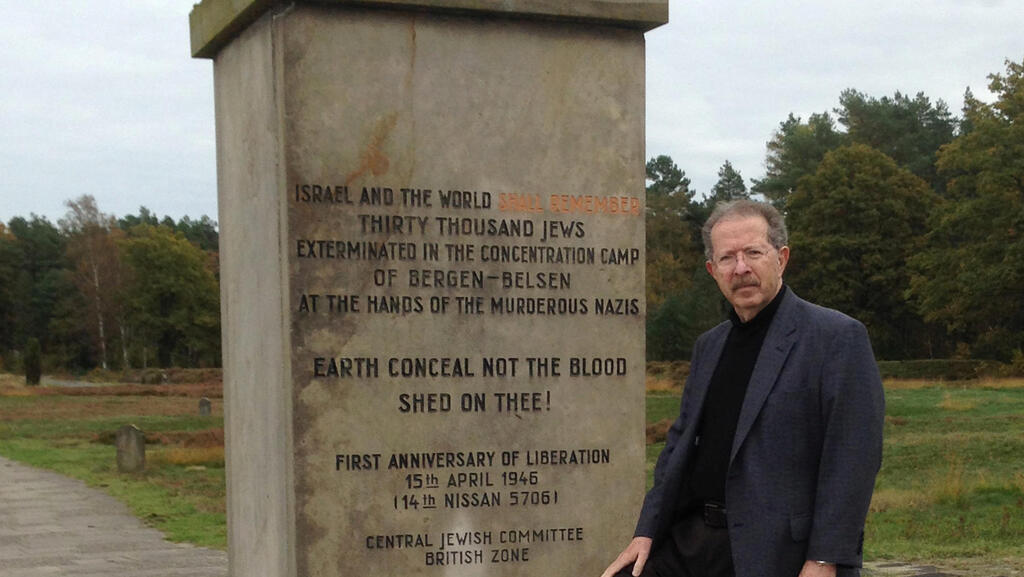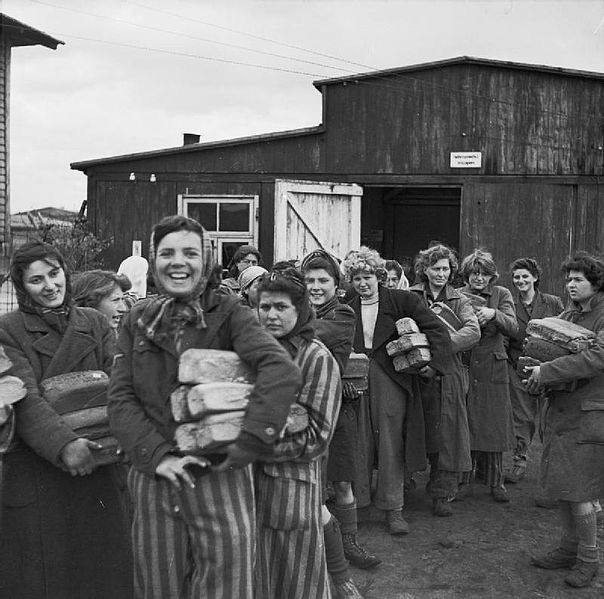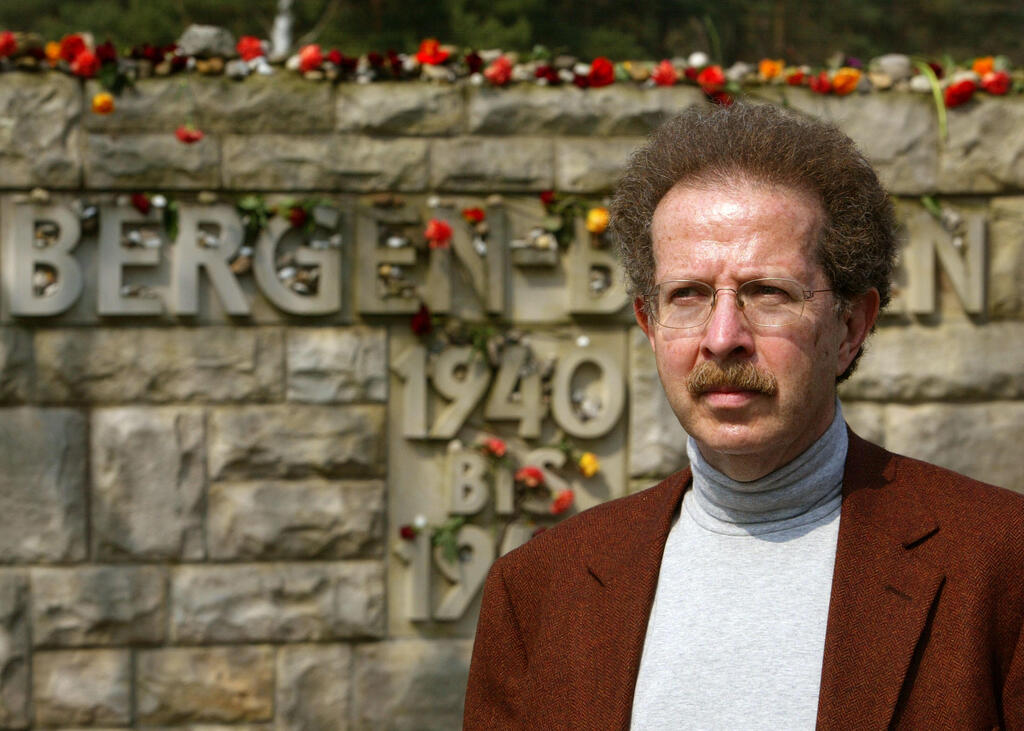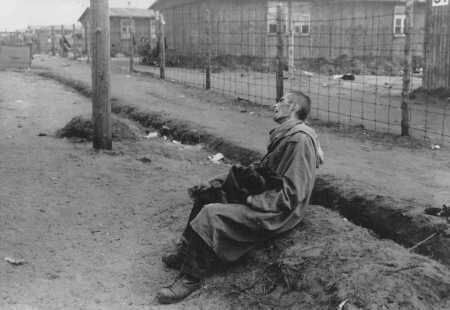Menachem Rosensaft, the son of two Holocaust survivors who became an international lawyer specializing in genocide, has spent much of his life trying to reconcile the horrors of the past with his Jewish faith.
Rosensaft was born in 1948 in military barracks housing displaced persons, including survivors like his mother of the nearby Bergen-Belsen Nazi concentration camp. His father survived five camps, including Auschwitz and Bergen-Belsen.
4 View gallery


Menachem Rosensaft, an American Jew, stands before a monument to the victims of the Bergen-Belsen concentration camp in Germany October 26, 2014
(Photo: Reuters)
Around 50,000 prisoners died at Bergen-Belsen, among them Anne Frank. When British forces freed the camp in 1945, they found some 60,000 survivors, but nearly 14,000 died within two months from disease and malnutrition.
Rosensaft, an American, has turned to poetry to reflect in verse not only on the Holocaust but also recent attempts at genocide, such as in Bosnia and Rwanda, and also tackles racism and intolerance.
"We know there are neo-Nazi forces, there are white supremacist forces in all parts of the world who, if allowed to, will perpetrate horrific acts, crimes against humanity, genocide against the other," Rosensaft said in a video interview from his home in New Jersey.
"And 'the other' can be Jews, Roma, Muslims, it can be the immigrant and the LGBTQ community and we all have to be on guard."
4 View gallery


Female prisoners rejoice after the liberation of the Bergen-Belsen Nazi concentration camp, April 15, 1945
His book of verse, "Poems Born in Bergen-Belsen", is being published in April by Kelsay Books to coincide with Yom Hashoah, the Jewish day of remembrance for Holocaust victims on April 9 and the anniversary of the liberation of Bergen-Belsen on April 15, 1945.
Rosensaft, who has visited Bergen-Belsen more than 25 times, wrestles in some of the 82 poems with what he called "ghosts of those who will not leave" places where they were killed.
"I try to figure out in my own head what has happened to them, what are they doing, what is going on with the landscape which they still inhabit because they don't have a cemetery, they don't have a graveyard," he said. "Their graveyard is the sky."
He writes of clean-shaven guards humming Mozart as they select who will live and who will die and then ending their shift "with a bored smile before dinner".
4 View gallery


Rosensaft is pictured during interview at former Bergen-Belsen Nazi death camp
(Photo: Reuters)
Children inhabit many poems, inspired by his half-brother Benjamin, who at five-and-a-half years old was killed alongside his father and grandparents on arrival at Auschwitz in 1943.
As guards herded them to the gas chamber, Benjamin asked his mother if they were going to live or die. She did not answer. Benjamin would be 83 today.
When Rosensaft's mother died in 1997, he realized that the only place Benjamin now lived was inside him.
"I see his face, I try to imagine his voice, I try to imagine his pain, his fear, his anguish and the one thing I know is that if I didn't remember him he would disappear," Rosensaft said.
4 View gallery


A survivor of the Bergen-Belsen camp after liberation, Bergen-Belsen, Germany, April 15, 1945
(U.S. Holocaust Memorial Museum)
He said he writes about children killed in the Holocaust to give them "a measure of immortality".
A religiously committed Jew, Rosensaft's relationship with God is troubled.
One poem, "Psalm 13, Post-Auschwitz," starts by telling God:
"You hid Your face
ignored Your world
while flesh-fueled flames pierced the sky" and ends telling him:
"It is too late."

